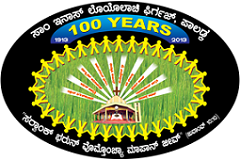A half day seminar on agriculture was held at Paladka Church hall for the farmers of locality by Catholic Sabha on 30th April 2014.
The programme began with a prayer song by Smt. Benedicta Danthis. President of Catholic Sabha Mr. William Dias welcomed the guests and the gathering. Parish Priest Fr. Ivan Michael Rodrigues, Zilla panchayath member, Smt. Sunitha Sucharitha Shetty, Taluk Panchayath member, Mr. Ramesh Poojary , PPP Vice President Mr. Denis D’Mello, Secretary Mr. Vincent Pinto, resource persons Mr. P.K. Thomas, Dr. Nithyananda Bhaktha, Mr. Sukumara Hegde, Mr. Izazuddin, Mr.Seetharama shetty were on the Dais.
All guests on the dais joined to light the lamp. Smt. Sunitha Sucharitha Shetty Inaugurated the programme by opening the Pingara. In her message she said that farmers are going away from agriculture. By using technology and the information from this type of programmes farmers can do profitable agriculture.
Mr. P.K. Thomas spoke on watershed management. We get water, air and light free of cost. We hear about constructing buildings by filling lakes. But we do not hear the news of constructing new lakes. Therefore water level is going down year after year. The next world war will be definitely fought for water. He gave the live example of Kadalakere. After renovation of Kadalakere lake the nearby wells have recorded increase in water level in summer. Dakshina Kannada gets 3.5metres of annual rainfall. If we do not stop it reaches the sea within seven days. We have to make running water to walk and walking water to stop, So that it percolates into soil. Recharging of open as well as bore wells is necessary to retain underground water.
Mr. Nithyananda Bhaktha explained in detail about dairy animals. India is in the first place in the production of milk in the world. Karnataka is second in India in production of milk. Our District is in 9th place in Karnataka. 60% of farmers in Dakshina Kannada use local varieties of cows. Local varieties give only 1to 1½ liters of milk per day. Whereas Jersey, Holstein varieties produce 10-15 liters of milk. Cows need to be given 5 liters of water for producing one liter of milk. For a cow which gives 10 liters of milk should be given 50 liters of water per day. Water and dry grass should be kept for cows at night before going to bed. Cows body do not have sweat glands like human beings, therefore cows need to be sprayed water on the body. Cattle do not need hot water to drink. They can be given any clean water. If necessary little salt can be added. Cattle feed should be given dry without adding water. Water should be given after half an hour. A cow giving 10 liters of milk needs 5 Kgs. of cattle feed if it is not given fresh grass. If there is fresh grass 2Kgs. of cattle feed is sufficient. Stem of grass has more nutrients therefore grass should be cut into small pieces. Otherwise cows may leave the stems of grass without eating.
Mr. Sukumara Hegde of Horticulture department explained about different diseases of areca farm. One areca tree needs only 20 liters of water per day. If more water is given to the soil, it will make the soil acidic. Drip irrigation saves water. Cashew should be planted at the place where there is sufficient sunlight.
Mr. Seetharama Shetty spoke on paddy farming. Soil testing is very important to give fertilizers to the crop. Using right seed is very important to get desired yield. He shared his personal experience of paddy crop. He also shared his methods of keeping monkeys and pigs away from his farm.
Mr. Izazuddin, Asst. agricultural officer said that right use water and soil are very important for the farmers. He gave some useful tips to avoid pig menace.
Fr. Ivan Michael Rodrigues in his brief presidential address said that agriculture is our culture, we have to retain it for the future generation. He thanked the Catholic Sabha for organizing this useful programme.
Mr. Paul D’Souza proposed vote of thanks. Mr. Victor D’souza was the M.C. of the programme. Lunch was served after the programme.
(Photos by: Felix D’Souza)

0 Comments